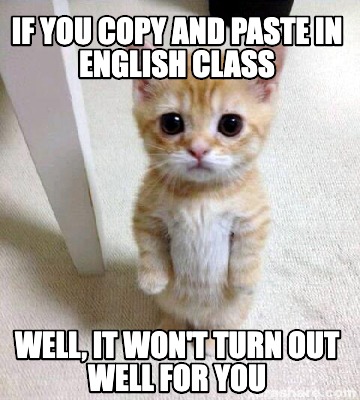Separable and Inseparable Phrasal Verbs
Separable and Inseparable Phrasal Verbs
A phrasal verb is a verb combined with a preposition or adverb (or both) that means something different from each of the words that make up the verb. There are two types of phrasal verbs. Separable phrasal verbs can be broken up by other words, while inseparable phrasal verbs cannot be separated by other words.
instructions :
1.-Watch the next two videos: 1.- Phrasal Verbs
2.- Separable and inseparable phrasal verbs
2.-Make a summary about the videos with approximately 50 words. (send it here like a commentary)

3.- Answer this (quiz) You will have today to answer.
Hola profesor le entrego el resumen:
ReplyDeleteVerbal phrases are simply compound verbs, they are verbs followed by a proposition, it happens that that proposition often changes the meaning, it also depends, with the name and if they are separated, etc. A compound verb that changes its meaning is for example:🦉
♥️Run
♥️To run into
♥️I went runnig yesterday
♥️I rang into Miguel on the street
🤎2: Two words
🤎To give up
🤎I wont give up
🤎Are you going yo give up
🤎To look after
🤎Can you look after look
🤎After the children?
🤎To Turn on
🤎Turn on the radio
🤎To come up with
🤍..They do not need:
🤍I"II get by
🤍To get up
🤍I got up at Seven
🤍To hurry up
🤍To get a long
🤍To Put on
🤍Put on the jacket
🤍I'm putting IT on
🤍To pick up
🤍Pick the Toy up!
Hi Teacher, how are you.?
ReplyDeleteTeacher here I sent you the work
Compound verbs are verbs followed by a proposition, in short, a verb that changes its meaning, is a preposition with a verb, it will depend a lot on whether they are separable or not separable, etc.
Examples:
To run into
To look after
To run out of
To get rid of
To come up with
I'll get by
To get along
To put on
To get over
To look forward to
Take it out
I can't get it out of my mind
Greetings Teacher.
Grisela Samantha Vera Quintero
ReplyDeleteThey are verbs made up of two words, an adverb and a preposition that, when used, only acquire different meanings.
Ejemplo:
-raise a topic of
-to provoke
-appeal
-Call from
-rejoice
-come up with something
-ahead
-Cross
-Present oneself
-cut
-cut it
-come in a moment
-lower or leave something
-crumble
-fall
-full
-Get up
-give up
.
They are verbs composed of two words, an adverb and a preposition that when used together acquire different meanings.
ReplyDeleteThey are those phrasal verbs in which a person of the predicate can be put, in the middle of the action and the preposition.
Former:
-take back (return, return)
Max took the defective radio back to the store where I bought it.
Max returned the faulty radio to the store where he bought it
-Call off = cancel, suspend.
Call it off = cancel it.
-Fill out = fill.
Fill the application out = fill the application.
-Call up = telephone.
Call them up = phone them.
-Fill (someone *) in on… = update someone.
Fill me in on what you are doing = update me on what you are doing
A prepositional verb (also calling phrasal verb or multi-word verb, or MWV) is, in English, a compound verb formed by the combination of a verb and a grammatical particle, that is, an adverb or a preposition, or even a verb followed by an adverb and a preposition.
ReplyDeleteGet on.
Come back.
Break down.
Turn round.
Drive off.
Look out.
Take off.
Get on.
Get by.
Keep up (with).
Look up (at).
Look forward (to).
Get in.